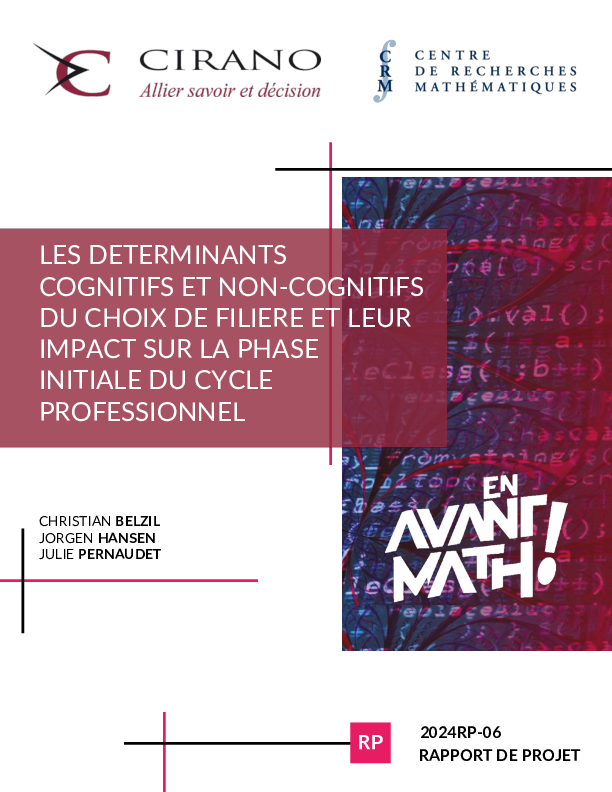Les déterminants cognitifs et non-cognitifs du choix de filière et leur impact sur la phase initiale du cycle professionnel
Using unique data allowing us to link individual cognitive and non-cognitive skill measurements (at age 18) to subsequent education trajectories, we estimate the relative importance of individual skills on the field of study and pay particular attention to the impact of choosing a scientific subject (STEM) on early career outcomes. Our results indicate that individual performance in the International Adult Literacy survey (similar to the PISA test) has no predictive power on the likelihood of enrolling in STEM but is however an important determinant of wages around age 30. STEM enrollment depends primarily on individual academic performance in mathematics and on school motivation measured at age 18. Finally, we find that after controlling for individual skill differences, Ontario students have a higher probability of becoming STEM graduates than Québec students.




